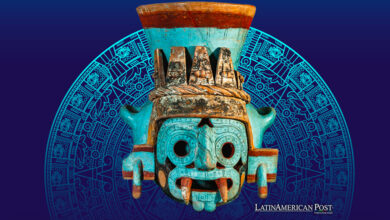Why should my baby use eco-diapers?
Find out the options there are in the market if you want to try other alternatives to traditional disposable diapers

We can take care of the environment in many ways. One of them, when we are parents, is to buy ecofriendly and sustainable products for our babies' use. For example, eco-diapers. Despite the myths about how difficult it can be to constantly wash diapers, here we tell you about the offer on the market, how they work, and why they benefit the environment and your baby.
Leer en español: ¿Por qué mi bebé debería usar ecopañales?
Why should I wash cloth diapers if I can use practical disposable diapers?
Yes, it sounds tiresome and tedious to have to wash diapers, especially when babies use several during the day. However, today there are different options and not just the cloth diapers that our grandmothers used.
On the market, there are two options for those parents who want to take care of the environment. On the one hand, there are biodegradable disposable diapers. This option combines the practicality of regular disposable diapers and the care of the planet.
According to the newspaper We are moms, these diapers are made with biodegradable materials that do not become chemical additives, which means they will decompose faster. In fact, these diapers disintegrate 100 times faster than traditional diapers. That is to say that on average a biodegradable diaper will decompose in a maximum of 7 years, while a normal diaper takes up to 500 years.
Also read: Pollution affects your baby's health
Your baby will also benefit from the use of this product, as it does not use chemicals such as chlorine or perfume. We are Moms highlights that biodegradable diapers are hypo allergenic and much more absorbent, which gives comfort to your baby.
Another option is cloth diapers, which are not the same as those used in previous times. In this case, there are also two options. One consists of regular cloth diapers that are washed after use. Unlike the previous ones, these have Velcro system and are similar to anyone's underwear.
The other option is diapers that have an absorbent device similar to toilet paper, which is disposable. These absorbent elements are inserted IGNORE INTO the diaper and then discarded when the baby has worn them. They are usually made of cotton, so they are biodegradable.
Where do I get them and why should my baby use them?
All these options are reusable and washable. If you are interested in acquiring them, you can order them online in platforms such as Mercadolibre, Amazon, Linio, Baby market, among others.
If you have questions about the use of these alternatives, consider that you can:
- Save money
- Take care of your baby's health
- Decrease the environmental impact by the use of disposable products
Keep in mind that if your baby uses diapers until he learns to go to the bathroom, at approximately 2 years old, the amount of discarded diapers is very large.
You may be interested: Latin Americans against disposable products
According to the Spanish company, Organic babies, in statements collected by the newspaper ABC of the baby, from birth to about two years old, a child will have used 5000 diapers. This implies "cutting 10 trees, generating 4 tons of garbage and 24 percent of global warming."
Many will argue that washing cloth diapers is not as ecological as it seems, because it involves the use of water. At this point, it is important to consider three aspects, highlighted by We are moms:
1. An average baby will use only 10 organic diapers until he learns to go to the bathroom.
2. Being made of cloth are reusable countless times and will be washed like any garment.
3. They have good quality, so another baby could use them, decreasing even more the harmful use of traditional diapers.
LatinAmerican Post | Marcela Peñaloza
Translated from “¿Por qué mi bebé debería usar ecopañales?”
Listen this article





